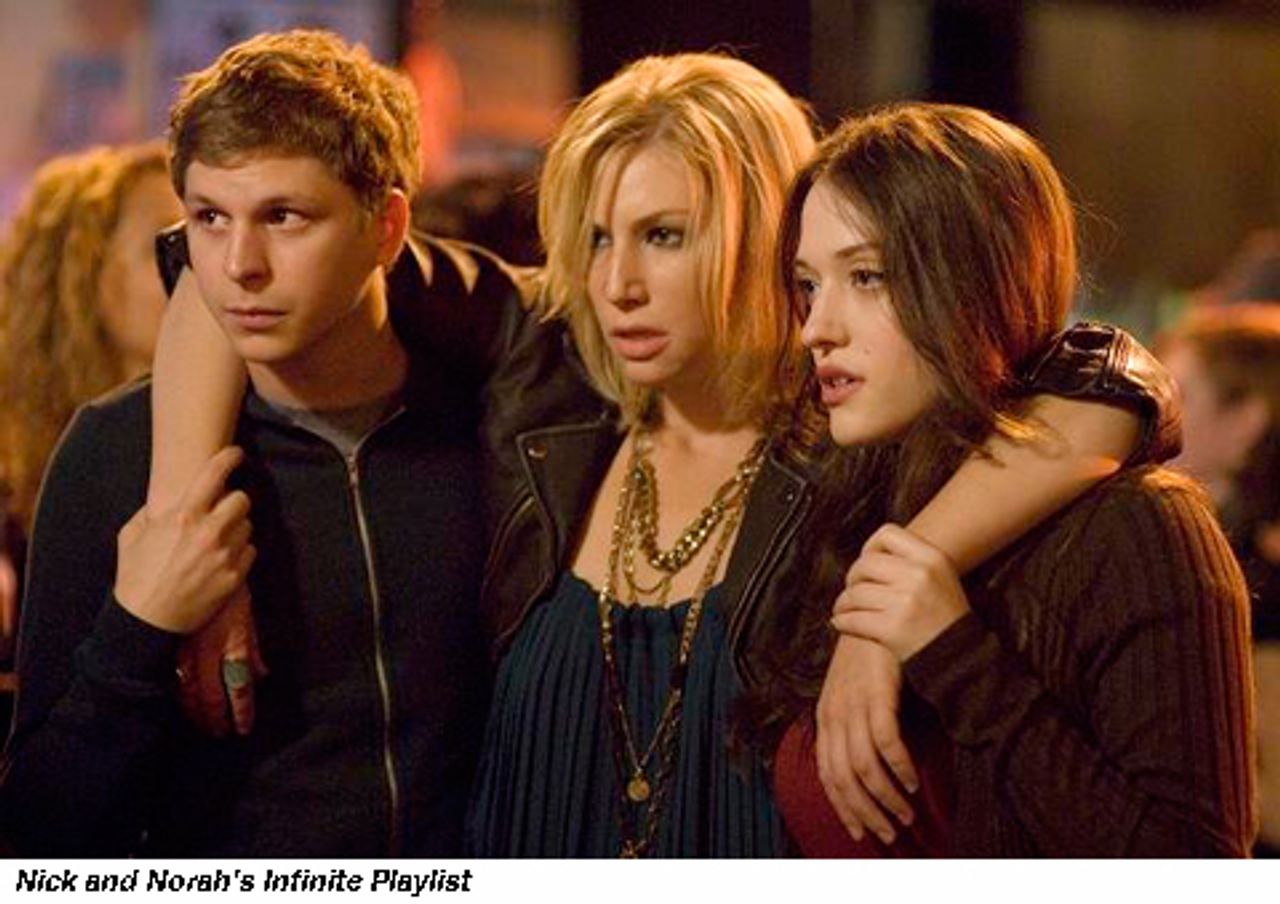 Nick and Norah's Infinite Playlist is the second feature film by American director Peter Sollett. His first was Raising Victor Vargas (2003), a moving work about the lives and relationships of Latino teenagers in Manhattan's Lower East Side. It was well received by critics and drew considerable attention to the first-time director.
Nick and Norah's Infinite Playlist is the second feature film by American director Peter Sollett. His first was Raising Victor Vargas (2003), a moving work about the lives and relationships of Latino teenagers in Manhattan's Lower East Side. It was well received by critics and drew considerable attention to the first-time director.
In spite of his successful debut, years would pass before Sollett was able to complete his next film. The young director, finding it difficult to move forward with a more "personal" project like Raising Victor Vargas, went to work on studio films. He had a number of projects linger in the development stage, none of which were completed.
In a recent interview with Filmmaker Magazine, Sollett describes the situation he found himself in after Victor Vargas. "[T]hings have changed dramatically in the independent world ... and I think that between what I expected would happen after Vargas, and what did happen, is explained by the shift in that sector. You know, I was trying to make another movie in a similar way to the way we made Vargas and we really couldn't get anywhere. So, in a way, what I've been doing is learning a different way of making movies, which is the way one makes movies inside the system. Because I've had to."
The director added, "I got into this because I wanted to make films, not because I didn't want to make films. For those years, I wasn't making anything and it was incredibly frustrating and I found it very upsetting."
Pressures have clearly taken their toll on Sollett. With one sincere and well-received effort under his belt, he has found it impossible to get another film of the same quality and texture made. The film industry, whether in its Hollywood or nominally "independent" forms, in which millions in profits are at stake—and for a young filmmaker, a career on the line—has proven cold to his touch. Sollett has felt himself compelled to adapt to this situation—to learn "a different way of making movies"—and the results, for better or for worse, are on the screen.
In the new work, Nick (Michael Cera) is a teenage music-lover who has broken up with his girlfriend. Unable to move beyond the end of their relationship, Nick continues to send his beloved Tris (Alexis Dziena) mix CDs of lovesick indie-rock music. These, tossed in the garbage by Tris, are recovered by Norah (Kat Dennings), another music lover who feels a connection to Nick though she's never met him.
Nick and Norah finally do meet at a gig in New York where Nick is playing bass in a rock band. Eager to see their friend move beyond Tris, Nick's bandmates push him and Norah together. An awkward couple, the two set out in search of the elusive band Where's Fluffy, believed to be giving a surprise performance in town that night. Matters are complicated, however, when Norah's drunken friend Caroline (Ari Graynor) runs away and becomes lost in the city.
The general direction of Nick and Norah's Infinite Playlist, however limited, has its charms. While she represents for Nick the very essence of beauty and sexuality, Tris is, in fact, a fake, both cruel and shallow. Over the course of the film, Nick struggles with the thought of returning to her—his illusory ideal—or staying with Norah who is honest and sincere.
Similarly, Norah's boyfriend is a self-seeking opportunist, with her only because he hopes to get his band's absurd demo recording into her producer-father's hands. She, like Nick, will be given the choice of rejecting her selfish companion for a more meaningful alternative.
But even with these interesting components, one can't escape the fact that the film is very slight. One feels the better moments of Nick and Norah have been diluted by certain concessions made to the studio's way of doing things. Where Victor Vargas achieved a fresh sensibility, avoiding more conventional or clichéd pitfalls, Nick and Norah often feels predictable and uninspired. Some of Sollett's sensitivity toward youth and relationships remain, but it doesn't carry the weight of his earlier work.
Attempts at gross-out humor threaten to bring the film down to the level of an average—or below average—teen comedy. There is a conscious step towards convention and the "mainstream" being taken here. The film, on the whole, is a disappointment.
It's difficult to say where Sollett will go from here. He's done good work before, and one shouldn't rush to write him off. He may find his footing again. One is less than thrilled, however, to read that his next project is writing the screenplay for a remake of the popular 1980s teen dance movie Footloose, scheduled for release in 2010.
